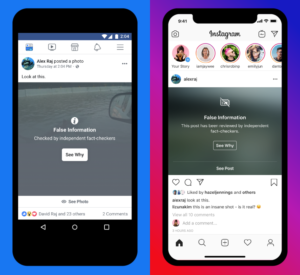It wasn’t too long ago that I heard some of my friends say they were considering deleting their Facebook accounts to escape the political uproar taking place on their news feeds. The sheer volume of political ads and aggressive debates seemed to monopolize the platform, and to make matters worse, a substantial amount of the content was inaccurate, misleading, or false news promoted by fake accounts. Facebook heard the many complaints from users and has been working over the past few years to better protect the public from misinformation and manipulative content.
Here are a few ways Facebook has been preparing for the election cycle in 2020:
Increasing Security
Facebook has been working hard to ensure its users are safe from fake accounts, and they’ve extended their efforts to secure the accounts of political officials and candidates to prevent the spread of misinformation.
Since 2016, Facebook has increased its safety and security teams to include more than 35,000 people who investigate and ultimately shut down accounts, pages, and groups that exemplify suspicious activity or manipulate debates on the platform. These efforts extend globally — Facebook collaborates with governments and law enforcement agencies all over the world to shut down political manipulation campaigns and all networks of inauthentic behavior.
Informing Users
One of Facebook’s primary goals this year is to secure the platform and help users make informed decisions by eliminating fake news. They achieve this by removing content and ads that:
- Violate their Community Standards
- Encourage violent and/or harmful behavior
- Include incorrect voting information or discourage people from voting altogether
To take these efforts a step further, the platform has partnered with unbiased independent fact-checkers to investigate fake news in 40 different languages. This team can mark content as falsified information. Once they have labeled a piece of content or an ad as misinformed, both Facebook and Instagram diminish its reach to prevent more people from seeing it. Additionally, if a page, group, or account repeatedly shares false information, the platform will decrease their posts’ distribution and limit their ability to create ads altogether.
Political Branded Content
Last but not least, Facebook has provided a way for users to see who is creating political ads and pages. When someone tries to run a political ad, the creator is required to complete an authorization process to prove their identity, including a Federal Election Commission ID or Tax-ID.
Any advertisements regarding social issues or elections will include a disclaimer that explicitly names the person or brand behind the ad so users can see who is trying to influence their vote. By using CrowdTangle, Facebook’s social media monitoring tool, users can easily explore what presidential candidates are putting on the platform — both personal and sponsored branded content.
While it may never be possible to completely escape politics on Facebook, these advances aim to prevent the spread of harmful and/or incorrect information. Hopefully, these efforts will pay off, and users will be able to use the platform to research candidates and make more informed decisions when they vote.
Don’t get left behind, work with KWSM to develop a powerfully targeted digital advertising campaign that will expand your reach and generate leads and more potential customers.
CONTACT US to learn more about developing a digital advertising campaign that will generate awareness, traffic & leads.





